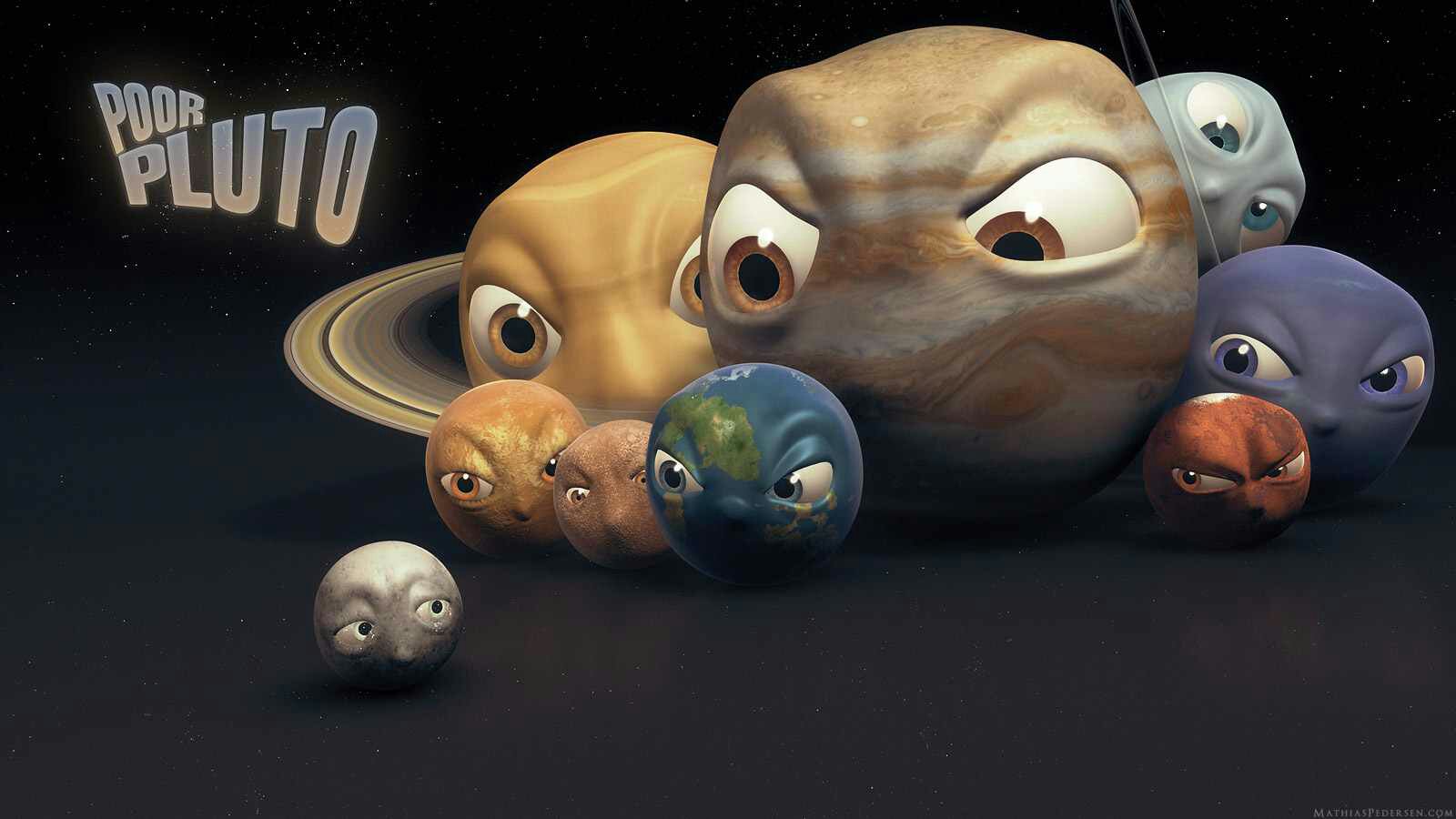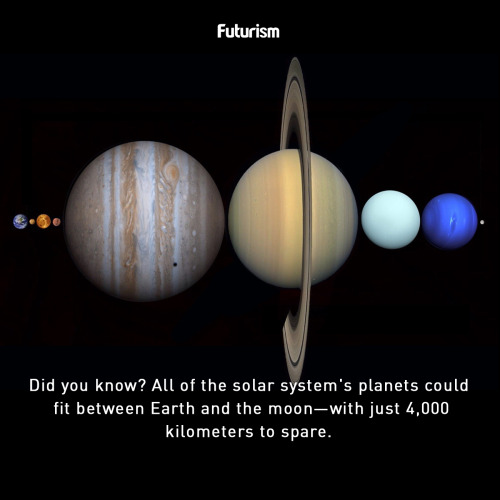You are using an out of date browser. It may not display this or other websites correctly.
You should upgrade or use an alternative browser.
You should upgrade or use an alternative browser.
Pluto is not a planet
- Thread starter Second Summer
- Start date
-
- Tags
- dwarf planet planet pluto
Blobbenstein
.......
the definition of a planet is whether or not you can play cricket on it(inside a dome)....I just don't know if Pluto could host a game....lots of 6s I suppose.
beancounter
The Fire That Burns Within
There. I said it! It's just not. It's a dwarf planet.
Consider this: If Pluto were a planet, then so would Eris be a planet, which has almost the same diameter and more mass. And both these have a smaller diameter and mass than our moon, less than 25% the mass and less than 70% the diameter.
We do not tolerate Pluto deniers on this board.
On a serious note, you can't compare Pluto or Eris to moons. Planets (dwarf or otherwise) orbit the sun. Moons orbit planets. I'm sure there are a few moons in our solar system that are as big or bigger than earth, so using the moon comparison logic, Earth would be a dwarf planet too.
You are mistaken! Earth is larger than all known moons in the solar system. ObviouslyWe do not tolerate Pluto deniers on this board.
On a serious note, you can't compare Pluto or Eris to moons. Planets (dwarf or otherwise) orbit the sun. Moons orbit planets. I'm sure there are a few moons in our solar system that are as big or bigger than earth, so using the moon comparison logic, Earth would be a dwarf planet too.
Ganymede: Facts about Jupiter's Moon, Ganymede
I believe the size was one of several factors that together formed the argument for why Pluto was (correctly in my opinion) classified as dwarf planet by the IAU at their 2006 general assembly.
Last edited:
beancounter
The Fire That Burns Within
Just to nitpick, moons do not orbit planets. Planets and moons orbit each other. Perhaps earth and moon should be considered a double planet?
Did a quick Google search and couldn't verify that planets and moons orbit each other. They all talk about moons orbiting planets, but not the other way around.
What's your source?
beancounter
The Fire That Burns Within
I believe the size was one of several factors that together formed the argument for why Pluto was (correctly in my opinion) classified as dwarf planet by the IAU at their 2006 general assembly.
So size matters, huh?
So now you're implying that Mars is a dwarf planet?!?
OK, fine, but don't you dare start using the "K" word when you refer to Pluto....
Last edited:
Capstan
Fleur-de-Lis
- Joined
- Dec 8, 2015
- Reaction score
- 337
A moon orbiting a planet implies that the planet is fixed in place. In the case of the earth and moon, they actually orbit around a center of gravity that is located just below the surface of the earth; in other words, the center of the earth is not the center of the moon's orbit; likewise, the earth "orbits" around this same center of gravity- the earth actually wobbles, as it travels around the sun, due to the gravitational pull of the moon. I forget where I first read this. It may have been in a book by Isaac Asimov.
beancounter
The Fire That Burns Within
A moon orbiting a planet implies that the planet is fixed in place. In the case of the earth and moon, they actually orbit around a center of gravity that is located just below the surface of the earth; in other words, the center of the earth is not the center of the moon's orbit; likewise, the earth "orbits" around this same center of gravity- the earth actually wobbles, as it travels around the sun, due to the gravitational pull of the moon. I forget where I first read this. It may have been in a book by Isaac Asimov.
Just so you know, saying "I read it in a book", or name dropping "Isaac Asimov" is not providing a source.
Providing a source is typically done by posting a link to a reputable website and/or giving sufficient information so that others can verify your source - e.g. "Orbits of celestial bodies" by John Doe, 3rd paragraph on page 57.
Add Edit:
I believe this link supports your statement:
Orbit of the Moon - Wikipedia, the free encyclopedia
Last edited:
Blobbenstein
.......
yea, a moon and planet is like a athlete swinging round a metal weight on a chain, the athlete has to lean back, and the weigh and him/her swings around a centre of gravity.
Blobbenstein
.......
if you had two planets the same mass, then they really would orbit each other, around a centre made of space.
To be fair, he did try!Just so you know, saying "I read it in a book", or name dropping "Isaac Asimov" is not proving a source.
Here we have it:
More: Barycenter - Wikipedia, the free encyclopediaThis is the case for the Earth–Moon system, where the barycenter is located on average 4,671 km from the Earth's center, well within the planet's radius of 6,378 km. When the two bodies are of similar masses, the barycenter will generally be located between them and both bodies will follow an orbit around it. This is the case for Pluto and Charon, as well as for many binary asteroids and binary stars. It is also the case for Jupiter and the Sun, despite the 1,000-fold difference in mass, due to the relatively large distance between them.
Capstan
Fleur-de-Lis
- Joined
- Dec 8, 2015
- Reaction score
- 337
Just so you know, saying "I read it in a book", or name dropping "Isaac Asimov" is not providing a source.
Providing a source is typically done by posting a link to a reputable website and/or giving sufficient information so that others can verify your source - e.g. "Orbits of celestial bodies" by John Doe, 3rd paragraph on page 57.
Add Edit:
I believe this link supports your statement:
Orbit of the Moon - Wikipedia, the free encyclopedia
No source is required, provided you have a rudimentary understanding of physics. Any two objects with mass will, by law of nature, exert a gravitational pull, each on the other. It's directly proportional to the product of their masses, and inversely proportional to the square of the distance between them. No symposium or college of professors is needed to verify this. It's common knowledge. To drop another name, I think it was Isaac Newton who first defined the laws of gravitation, over 300-years ago, but apparently, he's let his website expire. For the record, my assertion was my own opinion, based on what is universally known. It really requires no proof.
ledboots
Peace
beancounter
The Fire That Burns Within
No source is required, provided you have a rudimentary understanding of physics.
Sorry, no. When you are asked for a source, it should be provided no matter how "rudimentary" you view the information.
Tom L.
Forum Legend
- Joined
- Oct 30, 2012
- Reaction score
- 4,290
- Location
- New York State capital district
- Lifestyle
- Strict vegetarian
Maybe a more general re-definition of the term "planet" is in order. I'd say there is nearly as much difference between the inner planets and the outer "gas giants" as there is between dwarf planets like Pluto and Ceres and the inner rocky planets. Call them what you will- I find Pluto and Ceres very interesting. Besides,
It also seems almost arbitrary to define something as a planet or a moon based on whether it orbits a star or a planet. As Indian Summer points out above, some "moons" are larger than some smaller planets. I thought Saturn's moon Titan was even more massive than Ganymede and the other 3 largest Jovian moons, but I might be wrong about that, even if Titan does have a substantial atmosphere... Neptune's(?) moon Triton is also quite large.
EDITED TO ADD: thanks, Indian Summer- I sort of thought that a double planet would be defined as when they orbit a point between their outer surfaces. I didn't know that about the Sun and Jupiter though- I thought the point they orbited around was inside the surface of the Sun.
It also seems almost arbitrary to define something as a planet or a moon based on whether it orbits a star or a planet. As Indian Summer points out above, some "moons" are larger than some smaller planets. I thought Saturn's moon Titan was even more massive than Ganymede and the other 3 largest Jovian moons, but I might be wrong about that, even if Titan does have a substantial atmosphere... Neptune's(?) moon Triton is also quite large.
EDITED TO ADD: thanks, Indian Summer- I sort of thought that a double planet would be defined as when they orbit a point between their outer surfaces. I didn't know that about the Sun and Jupiter though- I thought the point they orbited around was inside the surface of the Sun.
Last edited:
Blobbenstein
.......
Capstan
Fleur-de-Lis
- Joined
- Dec 8, 2015
- Reaction score
- 337
Sorry, no. When you are asked for a source, it should be provided no matter how "rudimentary" you view the information.
Your rule, not mine. I provided you with enough information that you were able to verify it for yourself, and apparently, quite easily. Why should I prove what you've proven for me? Besides, Asimov is a respected writer and educator. If he believes it, that's good enough for me. If I said, "The world is round, not flat," would you demand a webpage to prove it?
I only brought this up in Pluto's defense, because, whether it's called a planet or not, Pluto's gravitational influence on the Solar System remains the same, in spite of scientific nomenclature.
But my question stands: should earth and moon be considered a binary planet system, or planet and satellite?
Tom L.
Forum Legend
- Joined
- Oct 30, 2012
- Reaction score
- 4,290
- Location
- New York State capital district
- Lifestyle
- Strict vegetarian
(referring to Blobbenstein's post showing all the planets close together) ^^^ Uh-oh... I think I see God coming toward the Solar System with what looks to be a very large croquet mallet...
I've got a bad feeling about this.
I've got a bad feeling about this.
Similar threads
Nutrition & Diet
Trying to lower LDL
- Replies
- 3
- Views
- 693
- Replies
- 8
- Views
- 1K




